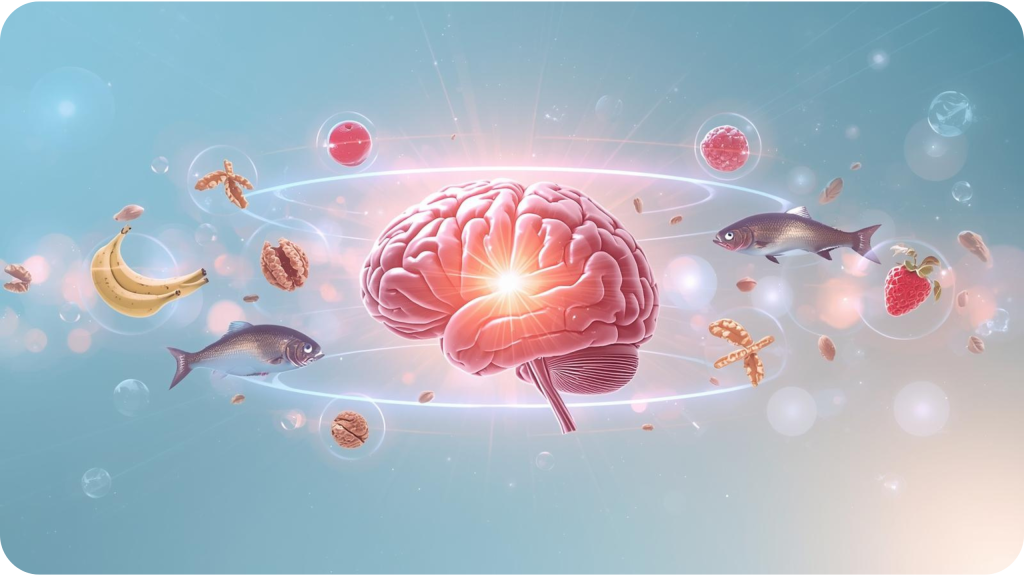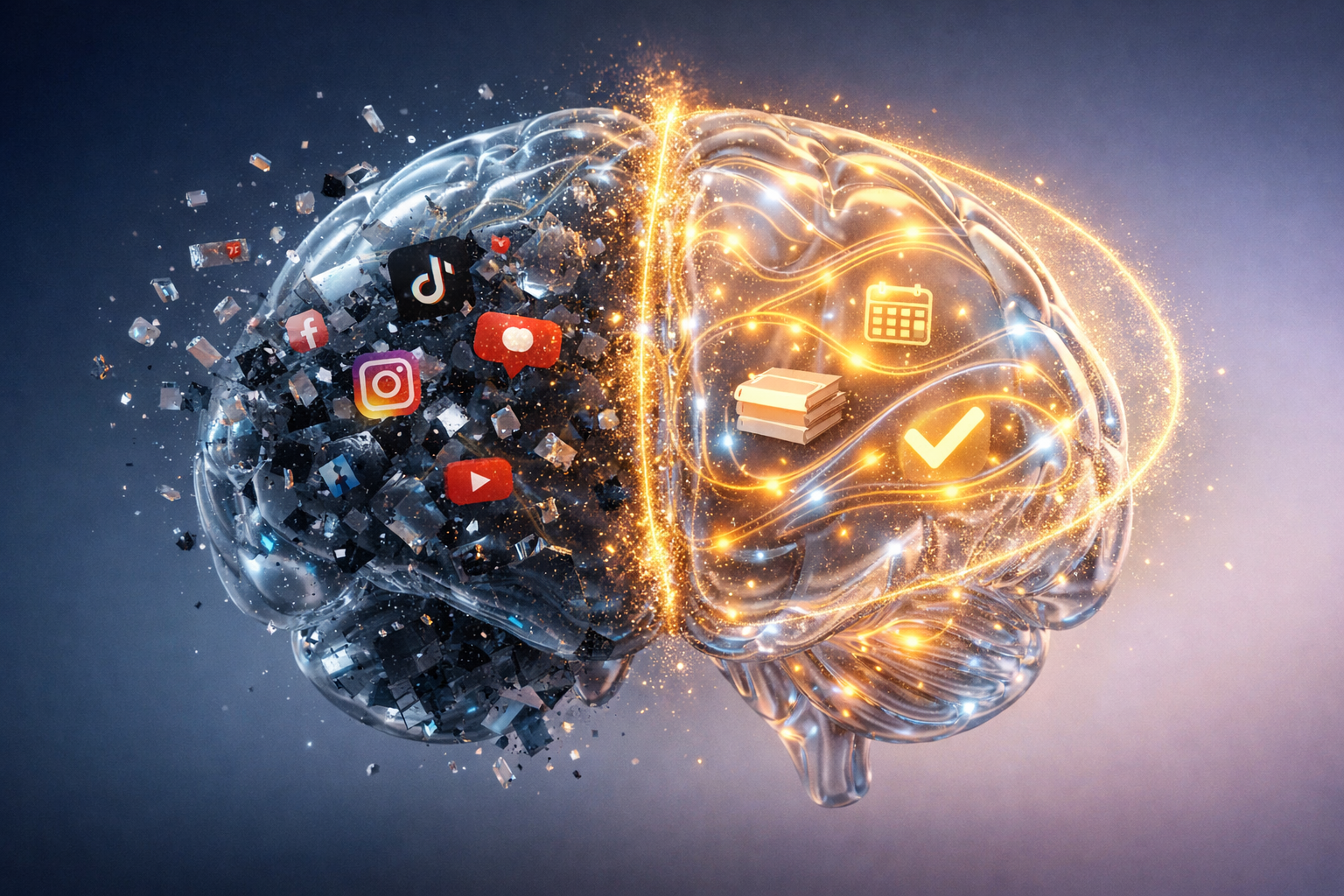
Fuel Your Brain: The Unbeatable Link Between Sleep, Nutrition, and Higher Grades
You’ve pulled another all-nighter, fueled by energy drinks and leftover pizza, trying to cram a semester’s worth of information into one exhausted brain. Sound familiar? While this scenario feels like a student rite of passage, it’s secretly sabotaging your academic potential. The truth is, the path to better grades isn’t just through more studying—it’s through better sleep and smarter nutrition. This isn’t just wellness advice; it’s academic strategy. In this article, we’ll explore how optimizing your physical health can directly boost your cognitive performance, making your study time dramatically more effective.
Beyond the Books: Why Your Body is Your Most Important Study Tool
Many students view their body and brain as separate entities—one just carries the other to class. But neuroscience reveals a different story: your physical health directly determines your cognitive capabilities. When you neglect sleep and nutrition, you’re not just feeling tired—you’re impairing the very brain functions needed for academic success: memory consolidation, focus, problem-solving, and creative thinking.
The constant cycle of caffeine-fueled late nights and convenience food doesn’t just leave you feeling drained; it creates real academic consequences. Research shows that well-rested, properly nourished students learn more efficiently, perform better on exams, and experience less academic stress. The good news? By understanding the powerful connection between your body and brain, you can transform your health habits into your most effective academic advantage.
Sleep: Your Secret Weapon for Memory and Learning
Sleep is far from passive downtime—it’s when your brain performs critical maintenance and learning processes. During sleep, especially deep sleep and REM stages, your brain consolidates memories, transferring information from short-term hippocampal storage to long-term cortical storage. This process is crucial for retaining what you studied during the day.

Without sufficient quality sleep, this transfer process gets disrupted. That’s why you can stare at notes for hours the night before an exam but struggle to recall the information during the test. Sleep deprivation directly impacts several cognitive domains essential for academic success:
- Focus and Attention: Sleep loss reduces your ability to maintain focus during lectures and study sessions.
- Memory Recall: Both working memory and long-term memory access become compromised.
- Critical Thinking: Complex problem-solving and analytical skills deteriorate without proper rest.
- Learning Efficiency: Well-rested brains learn new information faster and retain it longer.
Practical Sleep Strategies for Busy Students
Improving your sleep doesn’t require drastic changes—just consistent, smart adjustments:
-
Consistency is Key: Aim to go to bed and wake up within the same 1-hour window, even on weekends. Regular sleep patterns reinforce your body’s natural circadian rhythm, leading to more restorative sleep.
-
Create a Pre-Sleep Ritual: Develop a 30-minute wind-down routine without screens. This might include light reading, meditation, or gentle stretching. The blue light from phones and laptops suppresses melatonin production, making it harder to fall asleep.
-
Leverage Your Study Tools: Use your AI Study Planner to schedule realistic study sessions that end at least an hour before bed, preventing last-minute cram sessions. The planner’s time-blocking feature helps distribute your workload more evenly, eliminating the need for all-nighters.
-
Optimize Your Environment: Keep your room dark, quiet, and cool. Consider blackout curtains, a white noise machine, or simply using comfortable earplugs and an eye mask.
Table: The Impact of Sleep on Academic Performance
| Sleep Factor | Academic Impact | Practical Solution |
|---|---|---|
| Consistent 7-9 hours | Improved memory consolidation and recall | Use AI Study Planner to block sleep as a non-negotiable appointment |
| Quality deep sleep | Enhanced problem-solving skills | Create device-free buffer zone before bedtime |
| Regular sleep schedule | Better focus during morning classes | Set consistent study alarms and bedtime reminders |
| Nap management | Sustained energy throughout day | Limit naps to 20-30 minutes before 3 PM |
Nutrition for Cognitive Performance: Fueling Your Brain
Your brain, while only 2% of your body weight, consumes approximately 20% of your daily calories. The quality of those calories directly impacts cognitive function. Think of food as information for your cells—the right choices enhance cellular communication, reduce inflammation, and provide sustained energy for mental tasks.
Essential brain-supportive nutrients include:
- Omega-3 Fatty Acids: Found in walnuts, flaxseeds, and fatty fish, these fats build brain cell membranes and support neuroplasticity—your brain’s ability to adapt and form new neural connections essential for learning.
- Antioxidants: Berries, dark leafy greens, and dark chocolate contain compounds that protect brain cells from oxidative stress, which can impair cognitive function.
- Complex Carbohydrates: Whole grains, oats, and legumes provide steady glucose release—your brain’s primary fuel source—preventing the energy crashes associated with simple sugars.
- Protein-Rich Foods: Eggs, legumes, and lean meats provide amino acids that produce neurotransmitters like dopamine and norepinephrine, crucial for focus and motivation.
Smart Eating Habits for the Time-Pressed Student
You don’t need a gourmet kitchen or unlimited budget to eat well—just strategic approaches:
-
Master the Meal Prep: Dedicate 2-3 hours on weekends to prepare components for the week: cook grains, wash and chop vegetables, hard-boil eggs, and portion snacks. This makes healthy assembly quick during busy weekdays.
-
Strategic Snacking: Replace sugary snacks with brain-boosting alternatives like mixed nuts, Greek yogurt, apple slices with peanut butter, or veggie sticks with hummus. These provide sustained energy without the crash.
-
Hydrate for Mental Clarity: Even mild dehydration can impair concentration and cognitive function. Keep a water bottle with you during study sessions and lectures. If plain water bores you, add slices of citrus, cucumber, or mint leaves.
-
Time Your Nutrition for Study Sessions: Eat a balanced meal or snack containing complex carbs and protein about 60-90 minutes before intensive studying. This ensures a steady fuel supply without blood sugar spikes and crashes.
Integrating Wellness into Your Student Lifestyle
Building sustainable health habits requires more than willpower—it requires systems that fit your student lifestyle:
-
Schedule Health Like You Schedule Classes: Use your calendar to block time for meal preparation, exercise, and consistent sleep. Treat these appointments with the same importance as academic commitments.
-
Leverage Technology Wisely: Use your AI Study Planner to implement effective time management techniques like time blocking . Schedule focused study sessions using methods like the Pomodoro Technique (25-minute focused work followed by 5-minute breaks) , then honor your breaks with physical movement or healthy snacking.
-
Practice the “Dual-Purpose” Principle: Combine activities when possible. Review flashcards while walking on a treadmill, listen to lecture recordings while meal prepping, or conduct study group sessions while eating a healthy meal together.
-
Start Small and Build Consistency: Don’t attempt a complete lifestyle overhaul overnight. Begin with one change—perhaps a consistent wake-up time or adding vegetables to two daily meals—and build from there once that habit feels automatic.
The Synergy of Sleep, Nutrition, and Study Techniques
When sleep, nutrition, and effective study methods work together, they create a powerful synergy that multiplies their individual benefits. Proper sleep enhances your ability to learn and retain information, while good nutrition provides the building blocks and energy for cognitive processes. Meanwhile, techniques like spaced repetition (built into many digital study tools) ensure you’re reviewing material at optimal intervals for long-term retention .
This integrated approach transforms the often-stressful student experience into a more sustainable, effective, and enjoyable journey. You’ll find you need less cramming because you’re learning more efficiently during regular study sessions, and you’ll approach exams with greater confidence and less anxiety.
Table: Daily Health-First Student Routine
| Time of Day | Health Activity | Academic Benefit |
|---|---|---|
| Morning | Hydrate with water, eat protein-rich breakfast | Improved focus during morning classes, stable energy |
| Study Sessions | Healthy snacks, hydration, regular breaks | Sustained concentration, better information retention |
| Evening | Light dinner, digital curfew before bed | Better sleep quality, enhanced memory consolidation |
| Weekly Planning | Meal prep, schedule exercise, set sleep goals | Reduced decision fatigue, consistent energy levels |
Conclusion: Your Health is Your Academic Advantage
The evidence is clear: prioritizing your physical health isn’t a distraction from your academic goals—it’s the foundation for achieving them. Quality sleep and proper nutrition aren’t luxury activities for when you have extra time; they’re non-negotiable components of an effective learning strategy. By fueling your brain with the right nutrients and giving it the rest it needs to process information, you transform your natural cognitive abilities.
Remember that small, consistent changes create significant results over time. Start with one adjustment—perhaps setting a consistent bedtime or adding one vegetable to each meal—and build from there. Your brain is your most valuable academic asset; treat it with the care it deserves, and watch your academic performance naturally flourish.
Ready to optimize your study routine alongside your health? Explore how StudyWizardry’s AI Study Planner can help you create a balanced schedule that prioritizes both academic success and physical wellbeing.
Finals week does require intensive studying, but sacrificing sleep is counterproductive. Research consistently shows that well-rested students perform better than exhausted ones, even with slightly less study time. Strategy is key: start preparing early using spaced repetition in your study plan, prioritize sleep for memory consolidation, and focus on quality, focused study sessions rather than endless hours. During finals, protect your sleep as diligently as you protect your study time—it's when your brain solidifies what you've learned.
While caffeine can temporarily enhance alertness, energy drinks typically deliver excessive sugar and caffeine that lead to dramatic energy crashes, increased anxiety, and disrupted sleep patterns—all counterproductive for learning. The temporary focus comes at a significant cost to your overall cognitive function. For sustainable energy, opt for moderate caffeine from green tea or black coffee, paired with proper sleep and nutrition. Better yet, try a short brisk walk when you feel tired—it increases oxygen to the brain more effectively than caffeine.
Focus on assembly-style meals using pre-prepared components:
Quick Burrito Bowl: Canned beans, pre-cooked rice, salsa, and avocado
Instant Oatmeal Upgrade: Plain oats with nuts, seeds, and frozen berries microwaved with water or milk
No-Cook Lunch Wraps: Whole-grain tortillas with hummus, pre-washed greens, and pre-sliced vegetables
5-Minute Stir-fry: Frozen mixed vegetables sautéed with canned chickpeas and pre-cooked quinoa
Each takes less than 10 minutes and provides balanced nutrition for sustained mental energy.
Irregular schedules require planning rather than perfect consistency. Focus on maintaining consistent wake-up times regardless of class schedule, and use your AI Study Planner to schedule your meals and sleep blocks as fixed appointments around your classes. Pack healthy snacks and meals the night before, so you're not relying on cafeteria or vending machine options when hungry. Your body thrives on predictability—creating a personalized but consistent routine despite external variations will significantly improve your energy and focus throughout all your activities.





